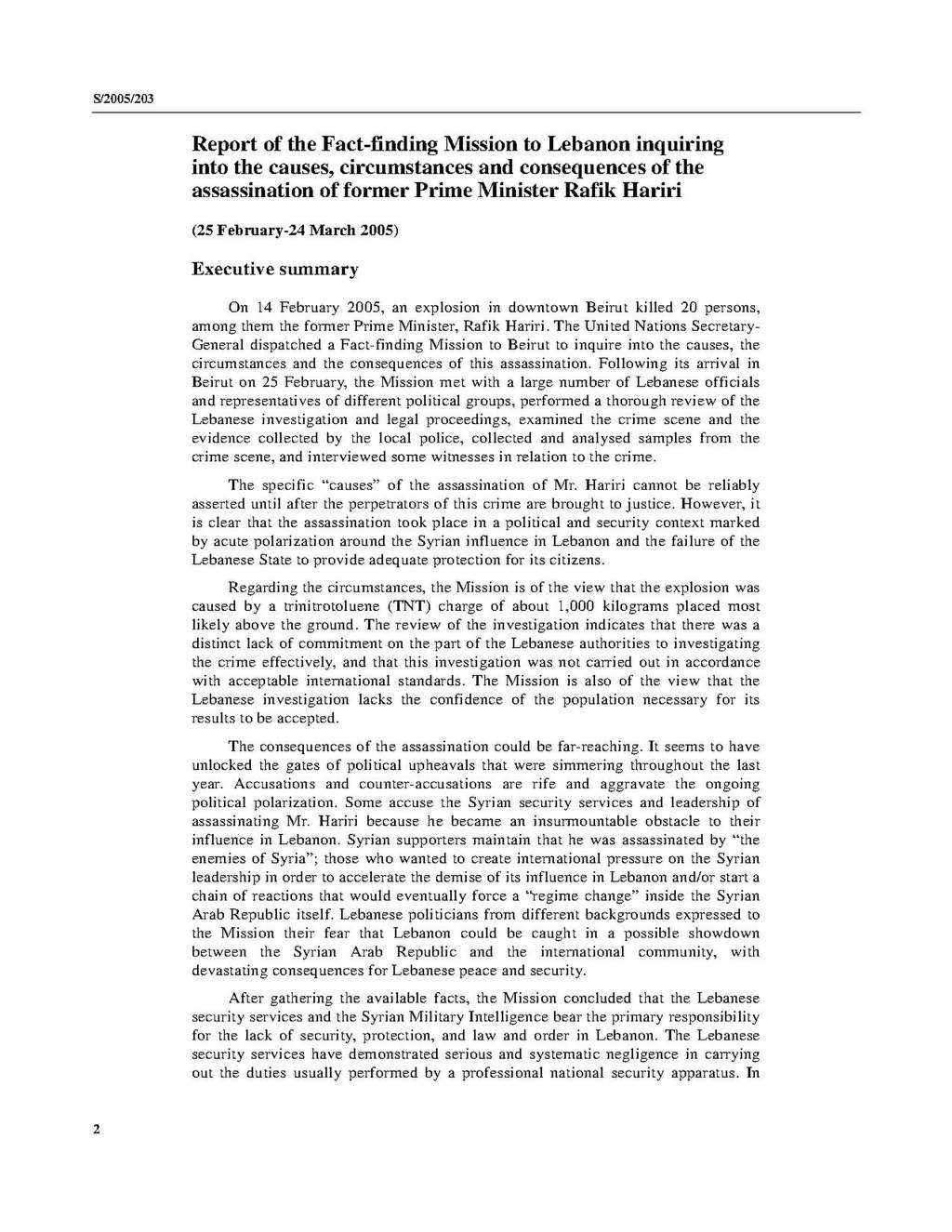Report of the Fact-finding Mission to Lebanon inquiring into the causes, circumstances and consequences of the assassination of former Prime Minister Rafik Hariri
(25 February-24 March 2005)
Executive summary
On 14 February 2005, an explosion in downtown Beirut killed 20 persons, among them the former Prime Minister, Rafik Hariri. The United Nations Secretary General dispatched a Fact-finding Mission to Beirut to inquire into the causes, the circumstances and the consequences of this assassination. Following its arrival in Beirut on 25 February, the Mission met with a large number of Lebanese officials and representatives of different political groups, performed a thorough review of the Lebanese investigation and legal proceedings, examined the crime scene and the evidence collected by the local police, collected and analysed samples from the crime scene, and interviewed some witnesses in relation to the crime.
The specific "causes" of the assassination of Mr. Hariri cannot be reliably asserted until after the perpetrators of this crime are brought to justice. However, it is clear that the assassination took place in a political and security context marked by acute polarization around the Syrian influence in Lebanon and the failure of the Lebanese State to provide adequate protection for its citizens.
Regarding the circumstances, the Mission is of the view that the explosion was caused by a trinitrotoluene (TNT) charge of about 1,000 kilograms placed most likely above the ground. The review of the investigation indicates that there was a distinct lack of commitment on the part of the Lebanese authorities to investigating the crime effectively, and that this investigation was not carried out in accordance with acceptable international standards. The Mission is also of the view that the Lebanese investigation lacks the confidence of the population necessary for its results to be accepted.
The consequences of the assassination could be far-reaching. It seems to have unlocked the gates of political upheavals that were simmering throughout the last year. Accusations and counter-accusations are rife and aggravate the ongoing political polarization. Some accuse the Syrian security services and leadership of assassinating Mr. Hariri because he became an insurmountable obstacle to their influence in Lebanon. Syrian supporters maintain that he was assassinated by "the enemies of Syria"; those who wanted to create international pressure on the Syrian leadership in order to accelerate the demise of its influence in Lebanon and/or start a chain of reactions that would eventually force a "regime change" inside the Syrian Arab Republic itself. Lebanese politicians from different backgrounds expressed to the Mission their fear that Lebanon could be caught in a possible showdown between the Syrian Arab Republic and the international community, with devastating consequences for Lebanese peace and security.
After gathering the available facts, the Mission concluded that the Lebanese security services and the Syrian Military Intelligence bear the primary responsibility for the lack of security, protection, and law and order in Lebanon. The Lebanese security services have demonstrated serious and systematic negligence in carrying out the duties usually performed by a professional national security apparatus. In
